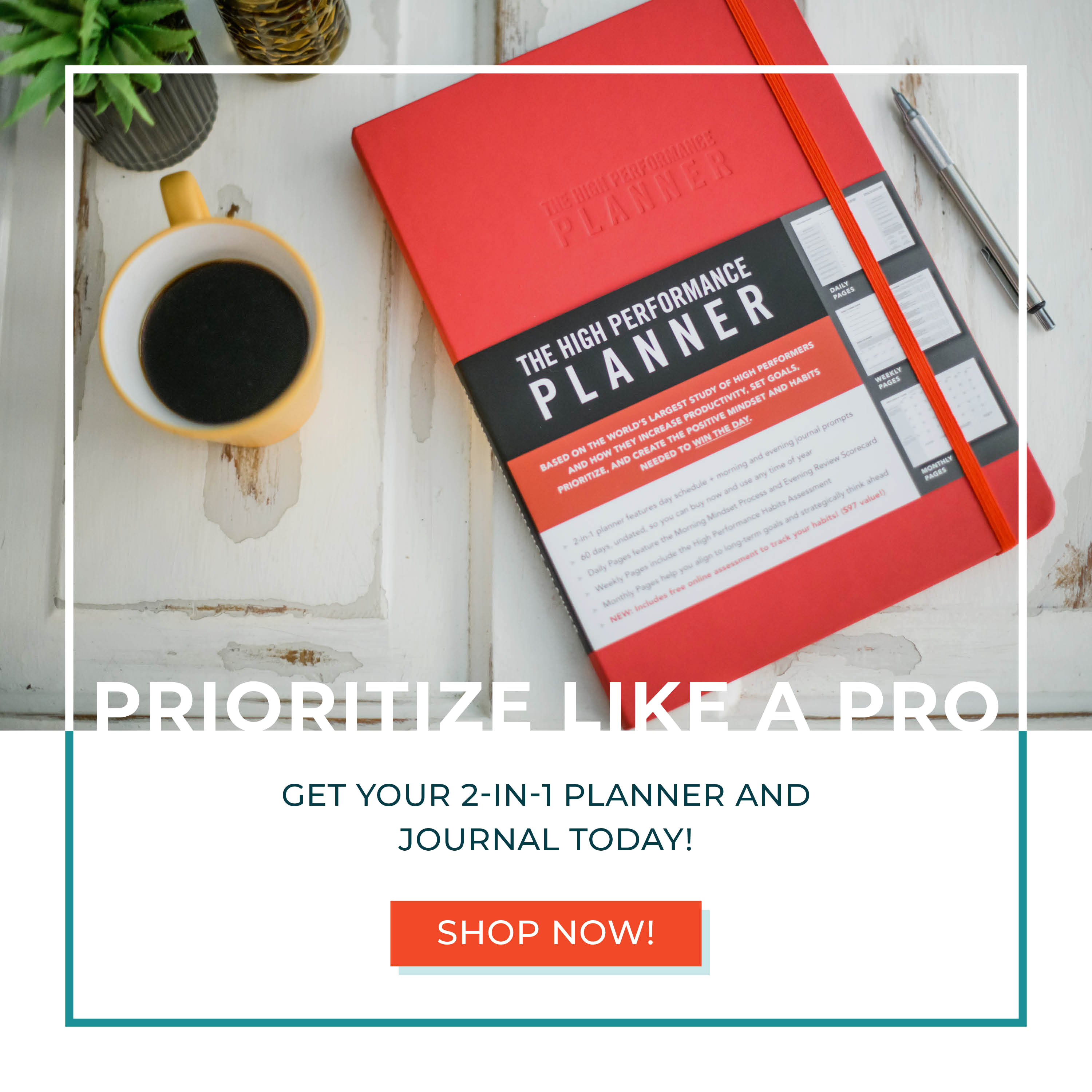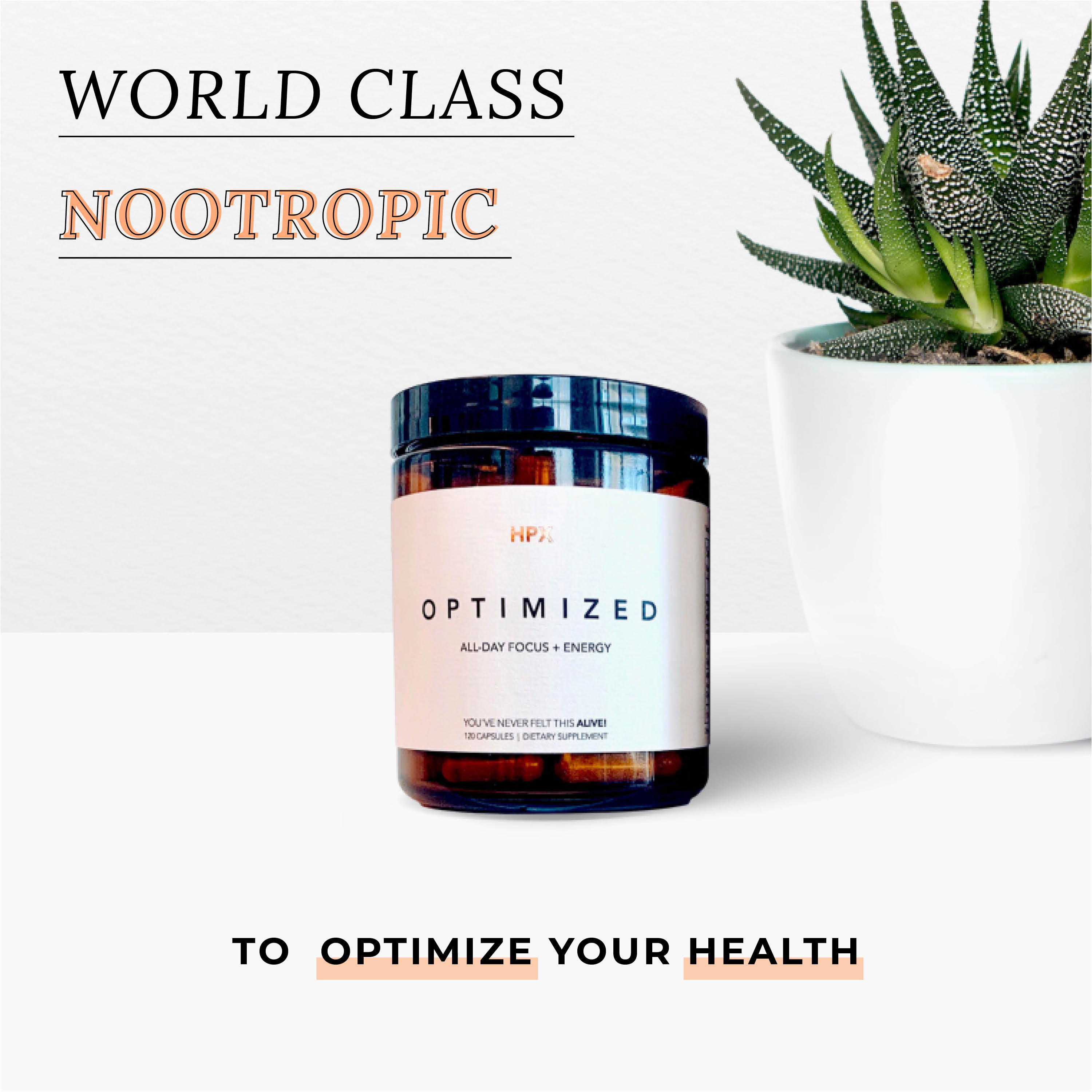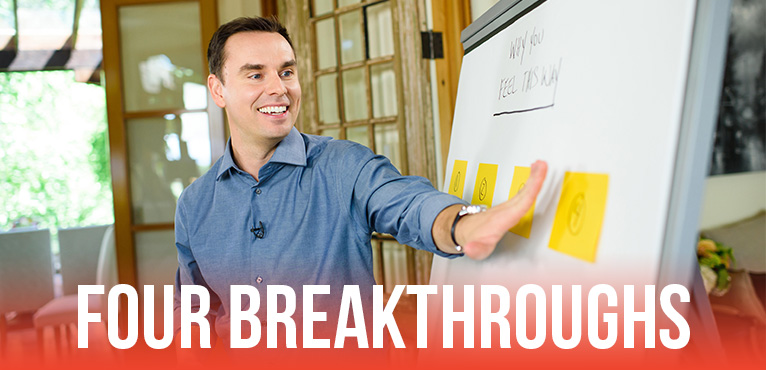SUMMARY
- “The most important thing you can do today: stop thinking that stuff will give you happiness. Stop thinking that you will achieve something today that will give you happiness. The only thing that’s going to give you happiness today is connection and appreciation.”
- We know how to find pleasure in the moment, but how do we find enduring happiness? In this week’s episode, learn the two things that lead to the greatest levels of presence and happiness!
- “We’re so scared of being disappointed that we destroy our happiness. We say, ‘I don’t want to get enthusiastic because it might not go well,’ so we cage ourselves into an unsatisfying life. If you want to be happy again, you have to open yourself again to the idea that things can be great.”
- Having deep reverence for life and for those around you is critical. Learn the importance of connection and appreciation and how mastering these mindsets can lead to long-term happiness!
- Watch the video to get the full training.
- Already have the High Performance Planner and CRUSHING each and every day? Let’s celebrate you! Take a photo with your planner and use #HPXlife or #TeamHPX.
HOT NEWS & DEALS!
-
Free Trial for Reignite Your Life course!
Enjoy a free trial for my Reignite Your Life course where I help you break the pattern of negative thinking and bad habits so you can deeply reconnect with your purpose! Click here to gain access.
-
High Performance Planner!
This is the 2-in-1 planner and journal achievers use to win the day and accelerate long-term success. Get yours here (while supplies last)!
DID YOU KNOW?
I give weekly prizes, gratitude and shout-outs to our students, so post a screenshot or video on Instagram and use #TheBrendonShow! I can’t wait to hear your thoughts about this episode!
RELATED POSTS
Add These Anti-Stress Tactics to Your Routine
Secrets to Resilience (How to Bounce Back After Failure)
How to Stay Positive During Your Worst Days
Want Change? Start with Yourself
Why You’re So Stressed (And What You Can Do About It)
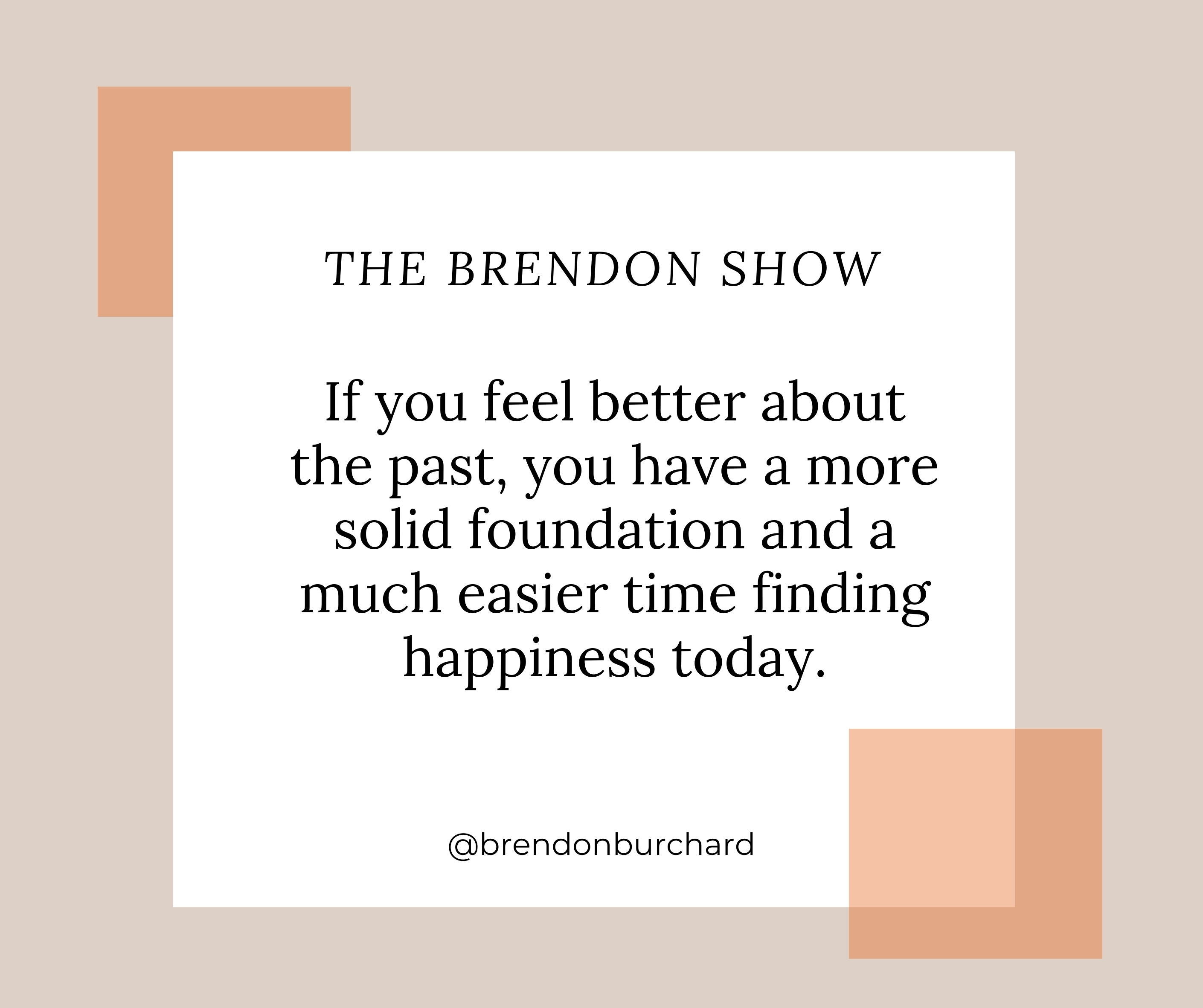
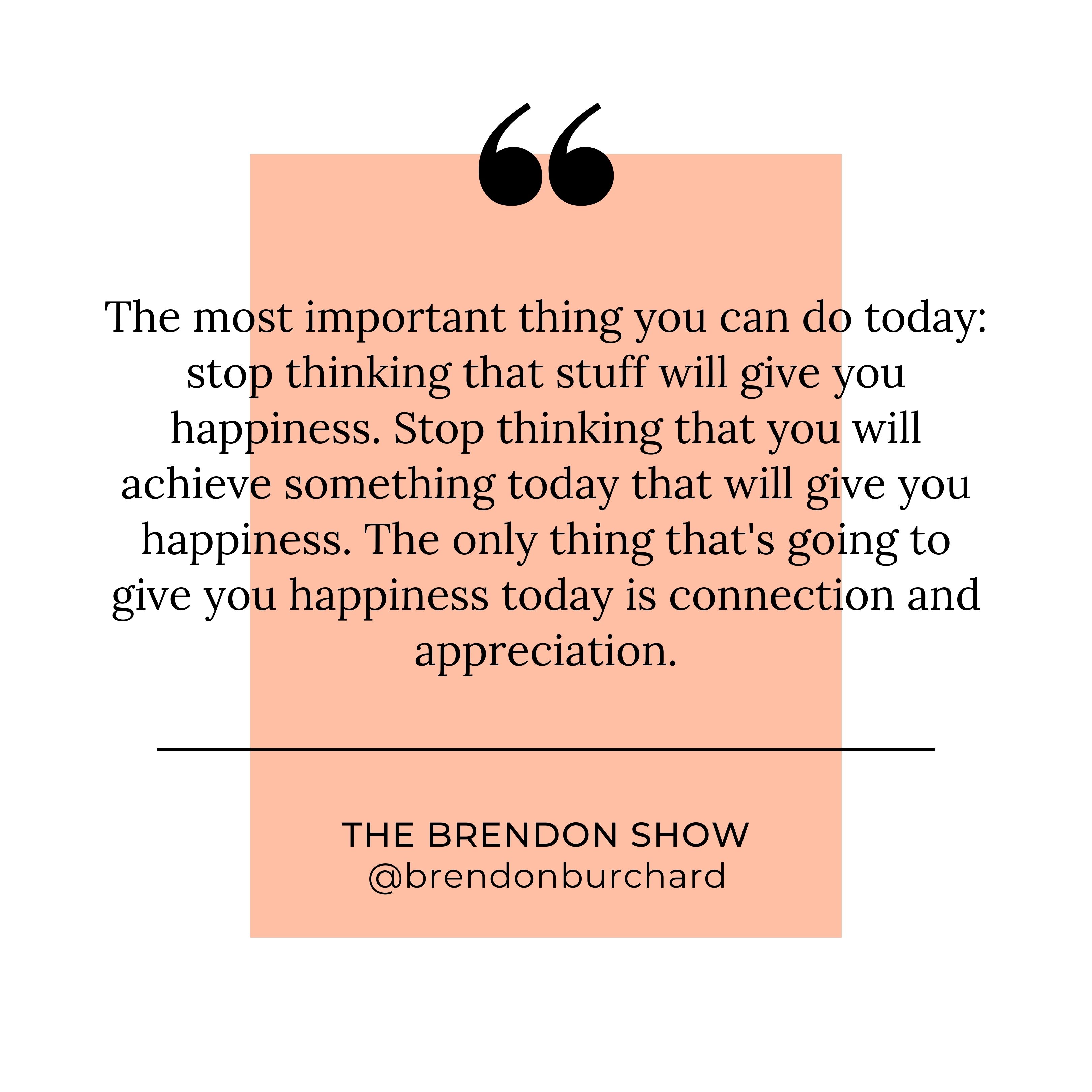
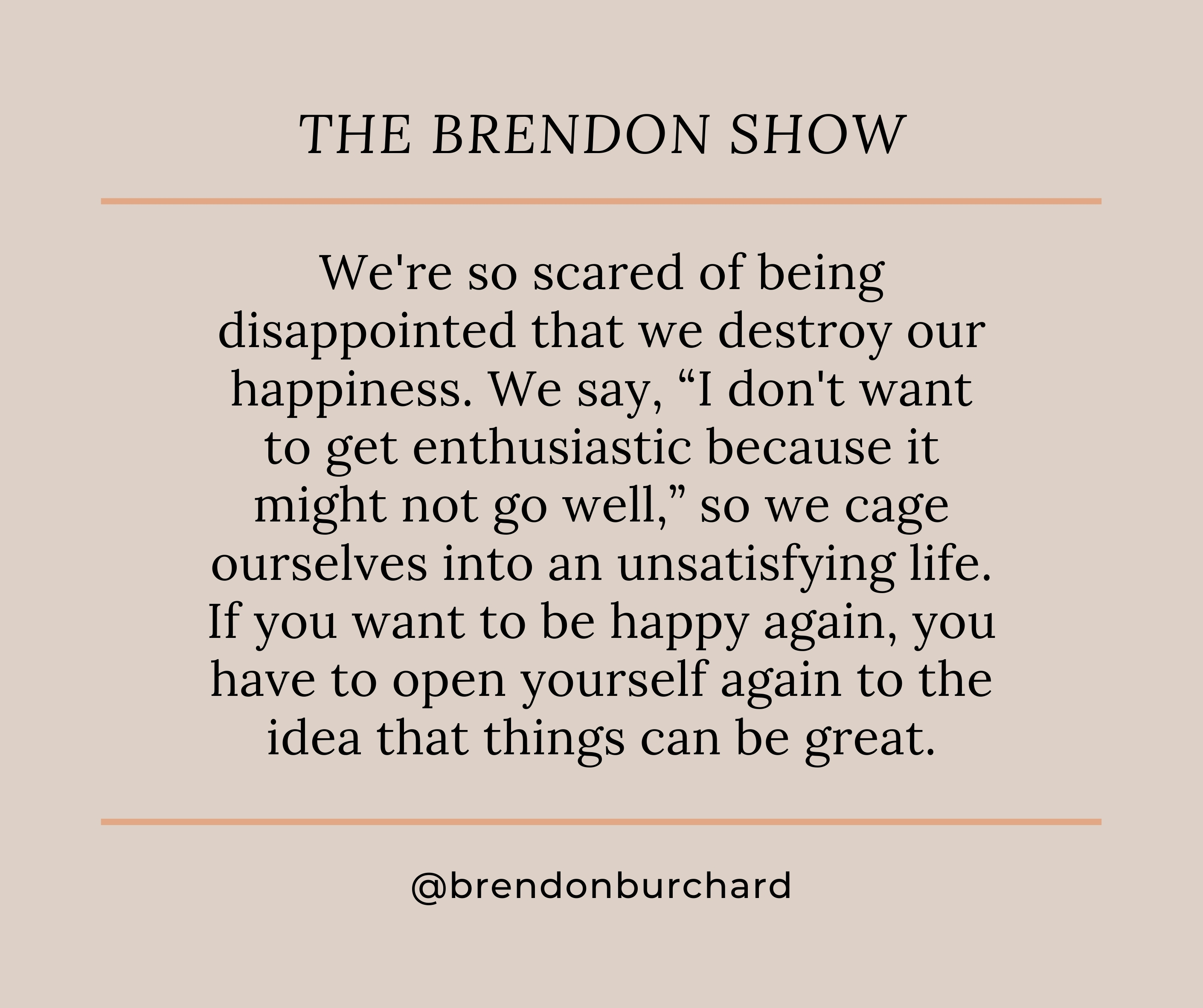
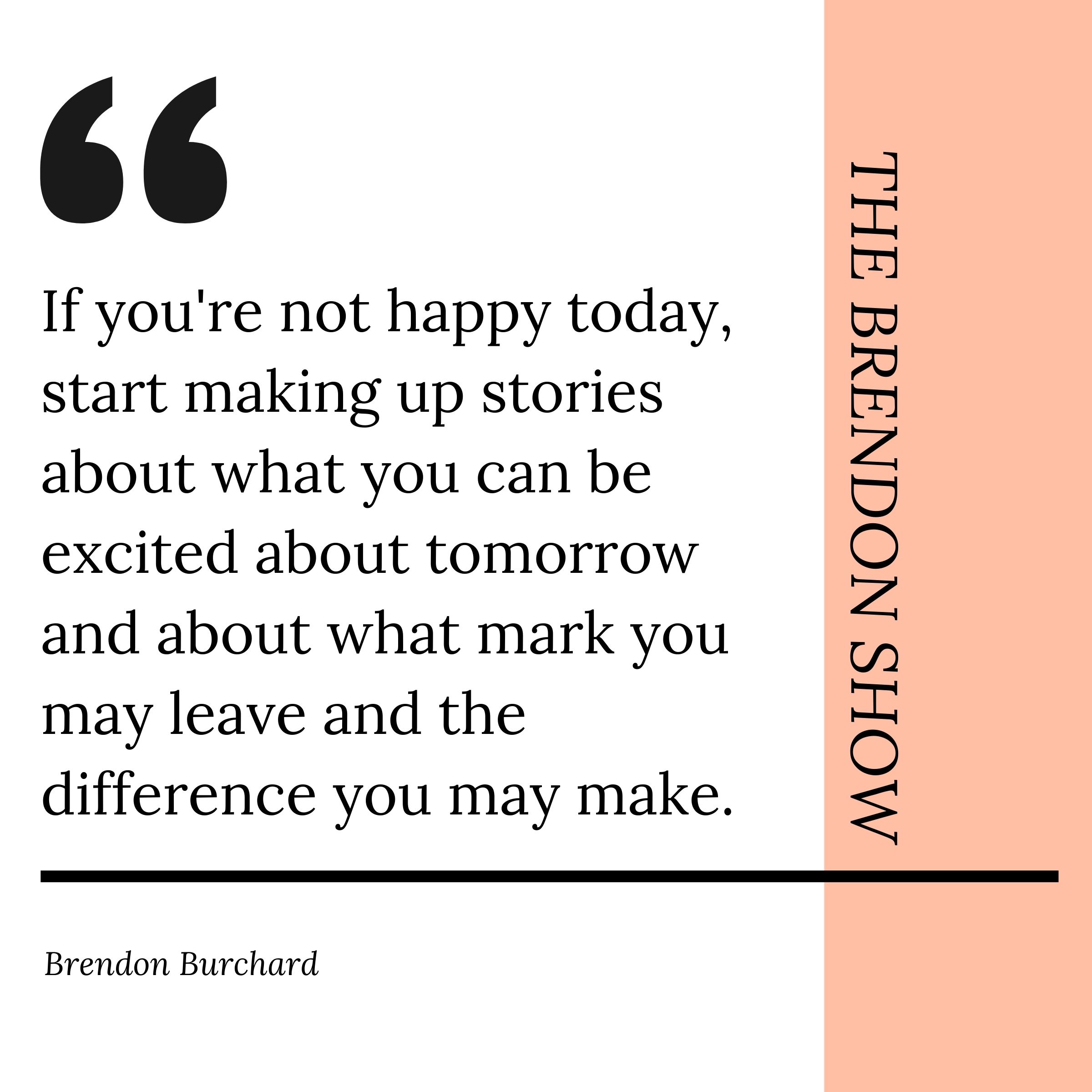
FULL TRANSCRIPT
[The following is the full transcript of this episode of The Brendon Show. Please note that this episode, like all TBS episodes, features Brendon speaking extemporaneously–he is unscripted and unedited. Filmed in one take, The Brendon Show has become one of the most viewed unscripted, direct-to-camera self-help series in the history of YouTube. It has also been the #1 Podcast in all of iTunes and is regularly in the top podcasts in Self-Help and Health categories around the globe. Subscribe to the free motivational podcast on iTunes or Stitcher.)
This is going to be a conversation about overall life happiness, not just in-the-moment happiness, ’cause in the moment happiness, I mean, we can all kind of get that. Bottle of wine, bag of chips. I don’t know. Maybe it’s just me, but I think finding pleasure or joy or in-the-moment happiness, we can get there. We’ll talk about that a little bit, but I want to talk about the big picture.
How do you know what will give you enduring happiness, happiness that you’ll self-report throughout your lifespan?
It’s different than sometimes just in-the-moment happiness. It has to last longer, and so what psychologists have done is basically broken it up and said, people who are happy over the long term, they tend to look at their lives in very specific ways. Here’s how they tend to do it. They tend to break up their life. They look at their past. They’re happy with their past. They’re happy with their present and they’re happy with where they’re going. So they kind of break it up into time zones, right, past, present and future. Here’s what we found in each of those areas. If you look at your past in this specific way, you’ll be more happy. If you look at your present in this specific way, you’ll be happier, and if you look to your future in this specific way, you’ll be happier over the long term.
So let’s start with your past, okay? Most people who are unhappy over the quality of their life over the long term, it’s because they’re really hung up on something in the past. They consistently battle it, blame it, are angry about it, are bitter against it, and those who are happy don’t have that negative emotional range about their entire past. It’s not to say that there might not be some things in the past that you can’t be unhappy about or some things that happened that you were upset about because you know what? Crap happened to all of us, but those who make it out and have a joyful life, here’s what they tend to do. When they look to the past, the first thing they tend to do is accept it. They’re like, “The past is the past. It did pass and here we are today.” They don’t make everything okay. They don’t try to validate it. They don’t try to say, “Well, that was supposed to happen.” They just go, “I got it, the past happened. I have to accept what happened ’cause I can’t change it now. I can change how I perceive it, but things happened. I’m going to accept that the past happened for some type of reason or if anything, maybe I don’t ascribe a higher reason to it, but I’m going to say in general, I’m good with the past. It happened.”
Today’s a new day and they accept the reality of that time period, that situation, that person, that thing that they didn’t like, it’s not here anymore so they can’t keep living there. They have to accept that today is today. All of that is gone. Today, they can choose a different life as we’ll talk about. So they accept the past but here’s the thing. They go beyond just acceptance—and this is really important ’cause I think people forget this all the time. It’s not just about accepting the past. Okay, that’s fine. No. Happy people, they generate memories of fondness on a continual basis.
They relive the past, not the negative things, but the positive memories. They think about “honey, you remember that one vacation we took” and they talk about it today. “Hey, do you remember when you were a kid and that funny thing happened” and they relive the positive. Happy people have a sense of nostalgia about the positive things of the past and they remember that and their connection to that is more than towards the negative things.
So here’s a question to see if you’re happy. With your family, with your friends, those around you, are you often reliving positive memories? They tell positive nostalgic stories about the past without apology. They’re not living there. They’re not trying to go back and relive the glory days. They’re just honoring and appreciating that those days even happened for them. They have a deep sense of fondness and yes, gratitude to the beautiful moments and memories and people and experiences they got to have. I know that might sound almost too easy to say because maybe in the past, you went through some traumatic stuff, some very difficult moments happened, but by and large, if you can finally get to a point where today you go, “okay, I don’t have to be cool with everything that happened but I accept the past, I’m cool. It’s over. I am cool today and I like these little moments and I’m going to choose to focus and remember those and bring them up to people.
If you feel better about the past, you have a more solid foundation and a much easier time finding happiness today.
If you want to feel happy today, there are two things we know without question will get you to higher levels of happiness.
1. Connecting to Others
Number one, connection. That is you deciding to connect to the moment, that means being present and connecting to other people. They’ve done a lot of those end-of-life studies to see what makes people happy and you see over and over and over again it’s the quality of their relationships. So if you want to be happy today, put more emotional connection into your relationships. I say that not philosophically. I mean, have that intention like “I’m going to put good energy into this relationship today. I’m going to put good energy into my kid today. Even if they were a jerk yesterday, I accept it, kind of cute, today, I’m going to just put good energy, good vibes into this relationship today ’cause if I do that, I’ll feel better.”
If you’re doing work and you don’t even like the work but at least you’ll engage with it, you’ll connect to the work, you’ll force yourself to be there, be present, be in it, you’ll feel happier.
2. Increase Appreciation
The second thing today that you can do is so easy is increase your appreciation. Almost in every psychological study ever done, those who had more gratitude reported greater happiness. The way that you get gratitude is you appreciate things. So let’s just jump right to that. Start appreciating things better. Appreciate your house today. Appreciate that maybe you got a car. Appreciate that you had somebody in the house with you today who loved you or appreciate the fact that you have opportunities that all around the world people would just beg for, that billions of people don’t have the opportunities that you do.
I know we’re all in a big rush. I’m guilty sometimes too of going through things as fast as I can ‘because I got one thing, I got to go on to another thing, another thing but you know what? I’ve found I’m most unhappy in life when that’s what I’m doing, I’m just going on from one thing to the next thing, to the next thing, to the next thing, and not feeling what I’m doing, not really connecting it and not appreciating it.
Right now, I shared with you earlier as I’m filming this course, I’m writing a book, and there’s days when I’m miserable about the book and those days I’m miserable about the book are those days that I forget to connect with the material and worse, I forget to appreciate the fact that I have the blessing to get to work on a book. I forget to appreciate how far I’ve come as a writer. I forget to appreciate the time that my team has set up to protect my ability to write. I forget to appreciate that God has given me a voice and I get to share that.
The most important thing you can do today: stop thinking that stuff will give you happiness. Stop thinking that you will achieve something today that will give you happiness. The only thing that’s going to give you happiness today: connection and appreciation.
So connect to the moment, connect to other people by giving positive energy. Remember, bring the joy and then appreciate the little things, all the little goofy things throughout the day. Appreciate the opportunities that you have. You’ll start to feel much happier, I promise you. Those are easy, quick wins in the moment and then what we know for people who have the highest ranking of happiness, they look to the future in a unique way. There’s two elements there that they’re usually looking towards. One, they’re enthusiastic about something in the future. They’re not optimistic. Optimistic would mean “I believe stuff in general from today will turn out well. I believe that tomorrow is going to be good.” Happy people are enthusiastic about something specific: tomorrow or in the future. Very specific. They’re enthusiastic about getting to do that project or complete that project. They’re enthusiastic about that wedding coming up. They’re enthusiastic about that thing that’s going to come out. There’s something they look for. It’s very specific. It’s not a general optimism—though that also has been shown very, very high in correlation to happiness, one of the highest rankings, being optimistic, thinking things will turn out well—but really happy people, when they talk about the future. There’s something specific they’re excited about.
So I ask you, could you be excited about for tomorrow?
What’s hanging out there that you haven’t allowed yourself to believe in and get stirred up about?
Because we’re so scared of being disappointed that we destroy our happiness. We say, “I don’t want to get enthusiastic ’cause it might not go well” and so we cage ourselves into an unsatisfying life. If you want to be happy again, you have to open yourself again to the idea that things can be great.
You have to open yourself again to that hope, that optimism. You have to open up yourself again to the possibility. Yeah, you might be disappointed but here’s the thing I always tell people: What would you rather experience, a life in which you don’t do anything and you never look forward to anything because you’re scared of disappointment—which, by the way, means you are continually living in disappointment—or you say, “You know what? I look forward to that, I think that could happen, I’m going to go for it.”
You do take action but at least if you do get disappointed, the whole time you were taking action, you were developing competency, knowledge, skill, ability, talent, mastery. So even if you got disappointed, you know what the disappointment came as? It came at the very end as a sudden surprise.
I’d rather have disappointment come at the very end as a sudden surprise than living every single day in fear and disappointment, and living in that terror that I’m going to be disappointed that I do nothing with myself.
I don’t know about you but that’s how I feel. So first, enthusiasm for a situation, something specific. It’s so important. Then that next part about looking to the future is they have a sense of positive legacy. They have made up in their mind and that’s all they’ve done. They’ve made it up, ’cause you I, we can’t read the future. We have no idea, but they’ve made up in their mind, this story about their life having meaning and specifically a legacy. They see looking into the future, they can see the legacy of their children. They can see the legacy of their business. They can see the legacy of the love that they created. They can see something. They can see that they are going to leave some type of mark, some type of relationship, or some type of situation where the world is better because they tried, because they showed up.
Maybe you don’t know what your legacy is, but you know what? You’re never going to suddenly realize it. It’s not just going to happen. You have to make it up.
So if you’re not happy today, start making up stories about what you can be excited about tomorrow and about what mark you might leave, the difference you might leave.
Even if you don’t know exactly what it is, you don’t have to have precision about these things, but in general, when you cast your eyes into the future, you go, “Mhm, that’s going to be good.”
